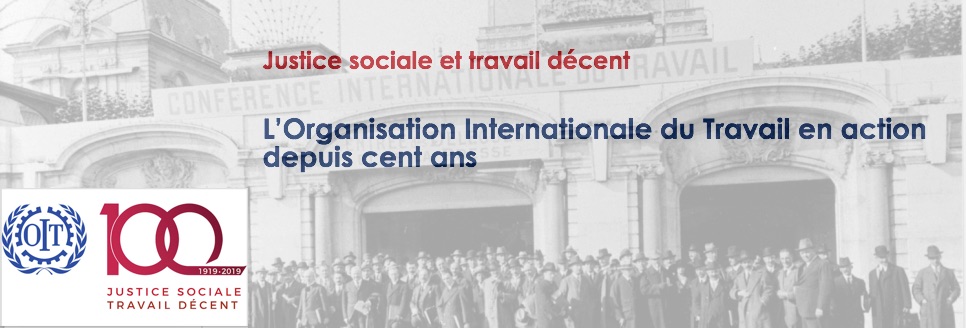Il s'agit d'analyser les conséquences sur la représentation et la prise en compte des milieux catholiques au sein de l'OIT de l'adoption pour l'Organisation d'une structure tripartite, c'est-à-dire qui associe aux représentants des gouvernements ceux des travailleurs et des employeurs.
Très présents au sein de l'Association Internationale pour la Protection des Travailleurs (AIPLT), qui précède l'OIT, les milieux catholiques sont peu représentés lors de la première conférence internationale du travail, en 1919, et dans les sessions ultérieures. La structure tripartite de l'Organisation écarte la plupart des représentants catholiques. Les organisations syndicales et patronales chrétiennes ne sont jamais les plus représentatives au plan national : seuls quelques conseillers techniques ouvriers et délégués gouvernementaux se réclament de la doctrine sociale de l'Eglise, ce qui empêche leur présence au sein du Conseil d'administration. Le Bureau International du Travail noue cependant des relations avec des organisations non gouvernementales catholiques telles que la Jeunesse Ouvrière Chrétienne (JOC).
La question se pose autrement après 1945 : la mise en place d'un statut consultatif par l'ECOSOC, l'UNESCO, la FAO, les relations croissantes avec des ONG catholiques, notamment pour les questions de développement, interrogent la primauté donnée à la représentation de la société civile uniquement au prisme du tripartisme. La création d'une Liste spéciale des ONG en 1956 n'est qu'une réponse partielle. Le problème de la représentation au sein des organes tripartites à la fois perdure et s'atténue avec l'entrée de nouveaux Etats. Au tournant des années 1970, ces blocages tendent à susciter des critiques et à freiner la collaboration entre catholiques et OIT.
Cette analyse, en interrogeant la prise en compte d'une part de la société civile au sein de l'OIT et de sa structure tripartite, s'inscrit donc dans l'axe 3 du colloque. Elle s'appuiera notamment sur les archives du BIT, de la Confédération Internationale des Syndicats Chrétiens, et de la JOC Internationale.
Promoting a Catholic voice : tripartite structure and civil society representation in the ILO (1919-early 1970s)
This contribution aims at analysing the consequences of the tripartite structure of the ILO on the representation of Catholic milieus within the Organization.
Before 1919, quite numerous members of the International Association for Labour Legislation were Catholics. However, very few representants of Catholic milieus were delegates or technical advisers during the first sessions of the International Labour Conference. ILO's tripartite structure was indeed a disadvantage for Catholics : Catholic workers' and employers' organization never had a sufficient weight at national level and then were not able to claim for a delegate seat. This low representation in the Conference also prevented them from being represented in the Governing Body. Meanwhile, the International Labour Office bound some unofficial relationship with the Holy See and Catholic NGOs.
The situation was quite different after 1945. The ECOSOC and other International Organizations such as the FAO or the UNESCO created a consultative status for NGOs of particular interest. The ILO did too, but with only half dozen organizations were granted this status, nearly all of them were employers and workers international organizations. Several Catholic NGOs which maintained a very close relationship with the ILO were then excluded from this status. The creation of a Special List of NGOs in 1956 only brought a limited solution. In the 1960s, Christian trade unions gained more importance thanks to their position in new member-states created after decolonization. However, they still only represented a strong minority and were excluded from major decision-making bodies such as the Governing Body. This created an increasing discontent in some parts of Catholic milieus in the early 1970s.
This analysis, by investigating the way in which civil society has been taken in account by the ILO and its tripartite structure, is part of the third axis of this conference. It will consider archival evidence from the ILO-archives and from the International Federation of Christian Trade Unions and the International Young Christian Workers Papers.

 PDF version
PDF version
